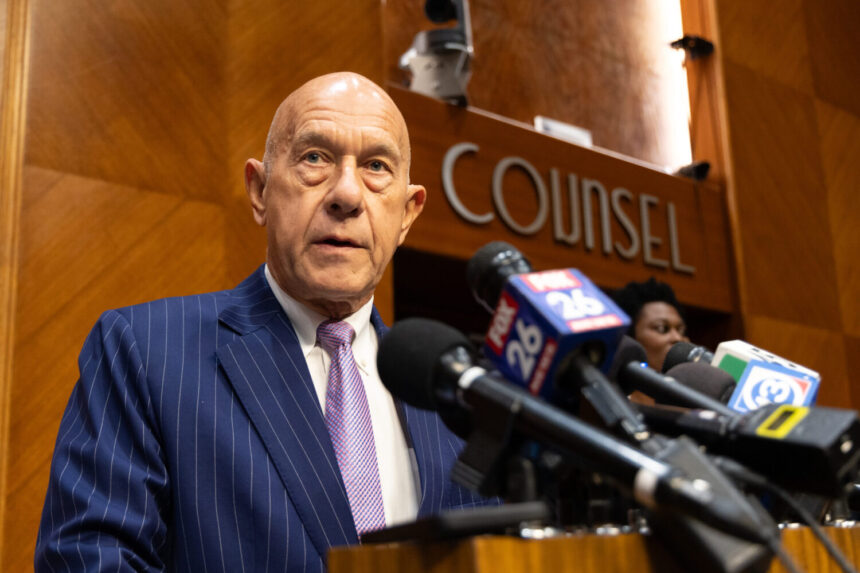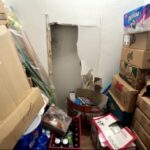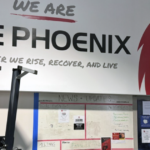Lucio Vasquez / Houston Public Media
Lack of generators for cooling centers. Closed fire stations. A shortage of city police officers and ambulances.
Whitmire started by recognizing and thanking first responders and city employees who were on duty during the storm and those who have been working since to help the city recover.
“I routinely say across the city that we have a great city with great people,” Whitmire said.
But he later added: “I’ll also say we have challenges.”
Ten fire stations were closed up to Wednesday because they didn’t have power or generators. On top of that, the city is facing a shortage of 500 firefighters and 2,000 police officers. At a press conference on Thursday, Whitmire said dozens of first responders from out of state were coming into Houston.
Whitmire said the city’s shortcomings were partly because of years of neglect before his administration took over.
“Yes I’m angry at the level of neglect at this stage, but that’s why we’re here, and that’s what we’re committed to.”
In addition to staff shortages, he said fire stations were struggling to keep their lights on. Ten fire stations were closed during the hurricane because they lost power and didn’t have generators. Those fire departments merged with other locations around the city, but Whitmire emphasized that if “they lose power, they can’t make calls.”
He added that multi-purpose service centers and cooling centers also were without power or generators. Council member Carolyn Evans-Shabazz whose district covers the south side said the Sunnyside Health and Multi-Service Center’s backup generator didn’t work on Monday.
“That’s a new building,” she said. “And that air conditioning system goes out quite frequently… And so it’s not going to do any good to say it’s a cooling system and there’s nothing cool there.”
Whitmire also pointed out the lack of resources and space at the city’s hospitals. He said at one point on Tuesday, only 4% of city ambulances were available for calls because they were “backed up at some of our hospitals” for operations scheduled days before the storm.
Most shocking to the mayor was when he found out that Houston police officer Fernando Garcia, who was shot in the leg while in the line of duty Monday evening, didn’t have a room at Memorial Hermann Health Systems. He was being treated in their hallway.
Council Member Amy Peck also visited Garcia and said she was just as surprised.
“I mean, for our police officer who was shot in the line of duty, not to have a room, that was just awful.”
Tom Munoz, acting director of Houston’s Office of Emergency Management, addressed their concerns at City Hall on Wednesday and said hospitals were struggling with “a backlog of patients, people could not be let out of hospitals.”
He added that widespread power outages have strained other city operations.
At the peak, more than 2.2 million Centerpoint residents didn’t have power because of the hurricane, the biggest outage in the energy company’s history. Munoz added that it’s also a historical outage for Houston.
Munoz said Beryl impacted 29 hospitals throughout the region, of which 18 are in Houston. That’s much more compared to the handful that were affected by the May derecho, he said.
“That means they did not have the communication that was needed,” Munoz said, adding that there were “electrical issues.”
Munoz said just from a 24-hour assessment after the storm, his office is estimating that the city is looking at $75 million worth of damages, making the city eligible to declare a disaster and access more state funds.
Recovery is happening steadily, Whitmire said, and he thanked residents who stayed home and off the roads after the hurricane passed. He’s asking Houstonians to continue staying off the streets because as of Wednesday, he said about 1,400 traffic lights were still not operating.
“Our neighborhoods, (because of) lack of electricity, are dark and dangerous,” he warned, adding that “the roads without these intersections, without lights, are dangerous. So please, after dark stay at home.”











